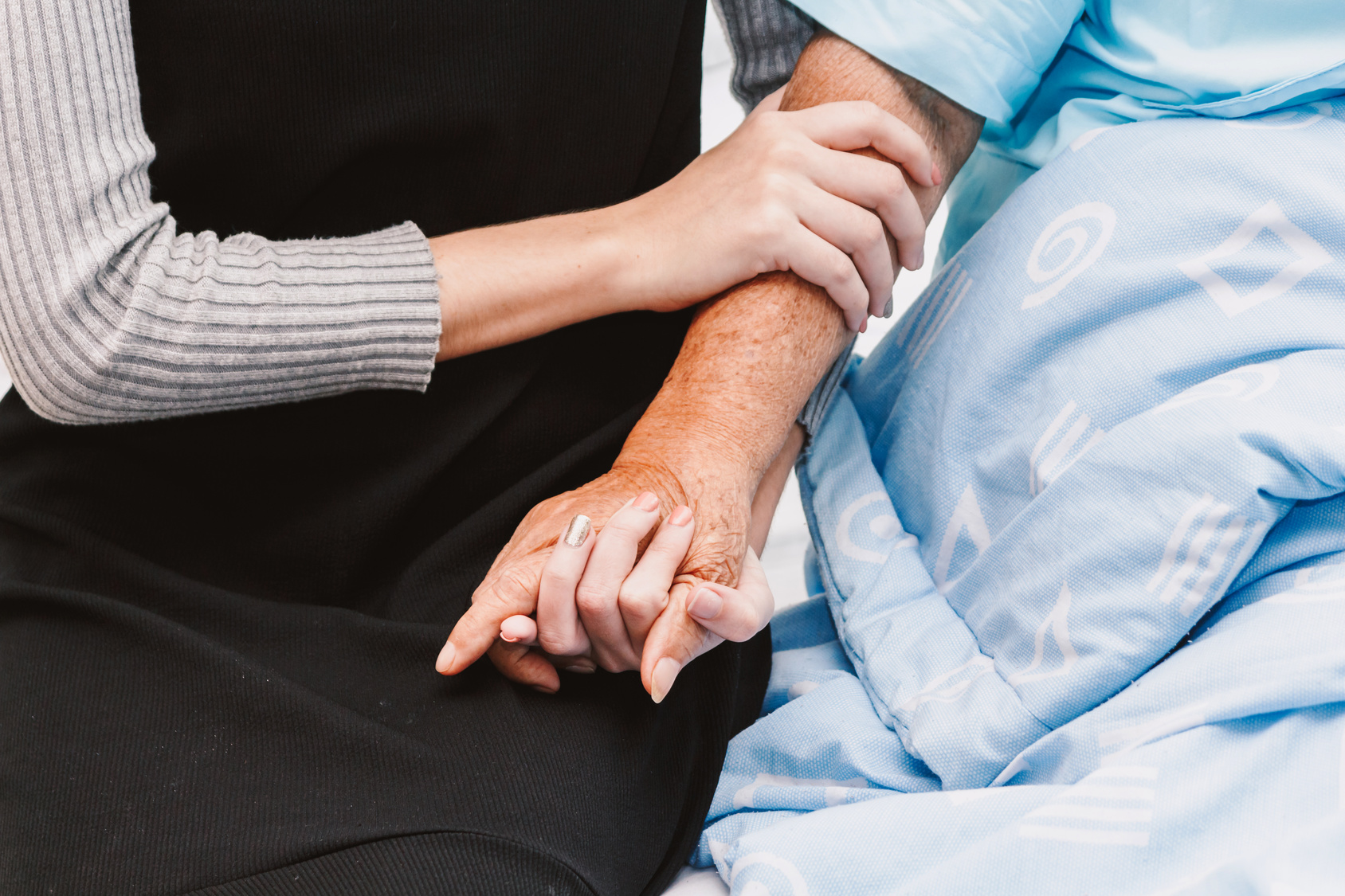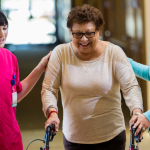Declining health may be indicative of the need for a different type of care—namely, hospice care. End-of-life care does more than to manage pain or the symptoms of illness. Hospice care is intended to improve one’s quality of life, especially towards the end.

Common ailments that send patients into hospice care include cancer, lung disease, and heart disease. Seniors with Alzheimer’s disease or other forms of dementia also receive hospice care when the timing is right. Many hospice patients suffer from a stroke, kidney failure, or liver disease.
Discuss the inevitability of hospice care with an aging adult long before it becomes a reality. Doctors and a hospice care team can also provide reassurance about its benefits. Having talks before a senior’s health crisis hits is helpful with making end-of-life decisions and promotes better care.
By recognizing when the end of life is near, family members are best able to honor the aging person’s last wishes. Rather than wait for the senior to let you know death is fast approaching, heed the following end-of-life signs that suggest hospice care is necessary.
1. Treatment Fails
Existing medical treatments may no longer work or the senior no longer desires aggressive medical intervention. If a rapid decline in health occurs over the last six months despite medical treatment, it is a sign that hospice care is in the immediate future.
A physician will determine if the life expectancy of the senior patient is six months or less. Once the medical determination is made, hospice care can begin. If the aging loved one lives beyond six months, the doctor can re-certify the senior for a longer duration.
2. Trips to the ER
An aging individual who undergoes frequent hospitalizations or trips to the emergency room is likely to be a candidate for hospice care. While it is normal for people over age 75 to increasingly visit the emergency room, multiple physician visits in the last six months indicates declining health.
3. Reduced Food Intake
As the aging body shuts down, less energy is required. Especially when experiencing difficulty swallowing, the senior may begin to refuse foods that are hard to chew or digest. Declining nourishment, while difficult for caregivers to accept, is a natural part of the dying process.
The lack of a desire to eat and drink leads to diminished body weight and alterations to bodily composition. The body naturally conserves energy. Rather than force the senior to consume food and water, comfort her with ice chips or offer softer foods that are easy to digest.
4. Increased Frailty
When physical weakness steadily increases, it is often the result of a decreased intake of nourishment, such as food and liquids. With less physical energy, the aging senior will find that simpler activities, such as sipping from a straw and having short conversations, become difficult.
To aid a senior with decreased physical strength, break up personal care tasks into several smaller steps and into increments of 15 minutes. Value the senior’s comfort level over accomplishing personal care tasks. Change clothing every other day, for example, if the individual is comfortable.
5. Urination Changes
Reduced liquid intake is accompanied by dehydration. The lower blood pressure that results will lead to decreased renal function (less urination) and, eventually, renal failure. During the dying process, patients who do not suffer from incontinence will lose function; urine output will stop altogether.
6. Outbursts of Confusion
When confusion or agitation set in, the end of life is near. Seniors may not understand what is going on in their immediate environment. They may also be unusually combative at this stage. Also common are hallucinations and delusions that people are trying to harm them.
7. Swelling
The legs, ankles and hands of a person who is undergoing the dying process may swell. Edema often occurs in parts of the body that are located below the heart, such as ankles and feet. If the patient is bedridden, the hips may also swell.
Normally, fluids are pumped through the kidney. But as people age, kidney function naturally decreases. Patients with chronic ailments, such as heart failure, liver disease and renal failure are most susceptible to edema. As disease becomes unmanageable, swelling is the likely outcome.
8. Breathing Variations
Shallow breaths interspersed with a few seconds to a minute of no breathing occur in those whose heart and brain are failing. Rapid, shallow panting may also take place. Patients may experience Cheyne-Strokes breathing, which is a loud breathing with an audible patter.
While air hunger is a natural course of dying, the senior experiencing it is unaware of changes in breathing. Elevate the senior’s head or help her sit upright to make it easier for the individual to breathe. Moisten the aging person’s lips and mouth with a wet cloth or moisturizer.
Hospice Care Assistance
As a person progresses toward hospice care, she will no longer be able to care for herself. Support with the tasks of daily living, however, is provided by professional caregivers from Assisting Hands Home Care. Our dedicated team of hospice care providers will ensure your loved one receives quality care.
The comprehensive, non-medical hospice care assistance provided by our staff of reliable caregivers meets the daily needs of our senior care recipients. Along with providing discreet help with bathing and dressing, we provide medication reminders, prepare meals and perform light household chores.
When your loved one is diagnosed with a terminal condition or has a limited life expectancy, Assisting Hands Home Care will deliver compassionate hospice care assistance in the comfort of home. Spending the remainder of one’s days in a familiar home environment is a benefit of home care services.
Assisting Hands Home Care is licensed, bonded and insured. While the full cost of hospice care is covered by Medicare, Medicaid and most private insurance for eligible patients, Assisting Hands Home Care provides hospice care assistance. Our caregivers will handle the non-medical home care tasks, including assistance with meal preparation, bathing, transferring, walking, etc. Our services are designed to allow patients feel more comfortable as our caregivers act as companions for your loved ones, engaging them in their favorite conversations and activities.
Free Consultation
For more information about our hospice care assistance services, contact Assisting Hands Home Care at (847) 868-9280. We proudly serve Evanston, Glenview, Northbrook, and Skokie, IL.







